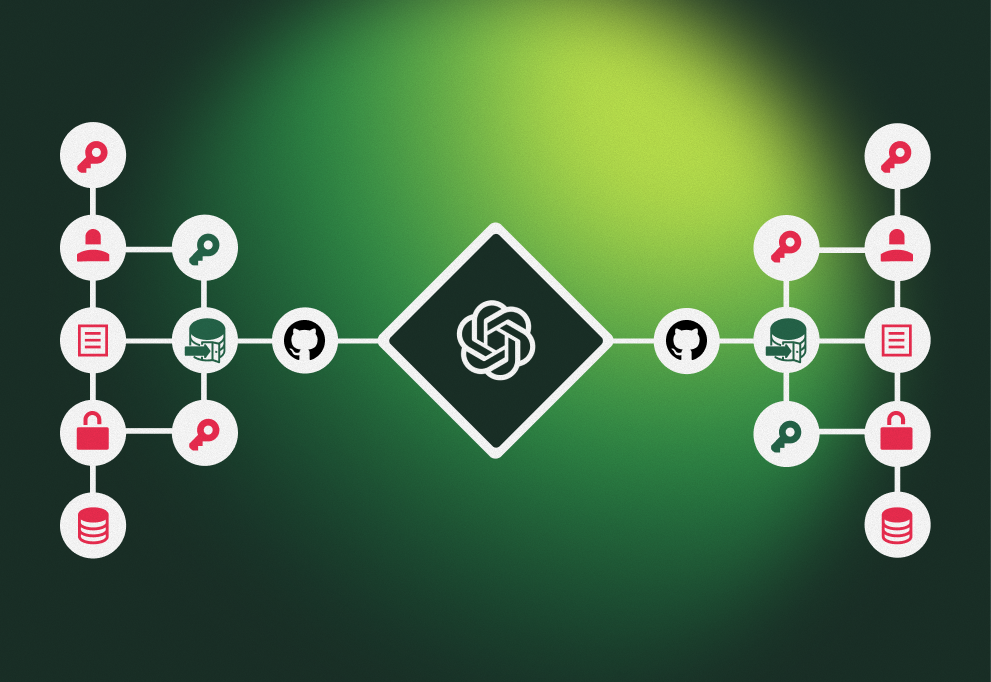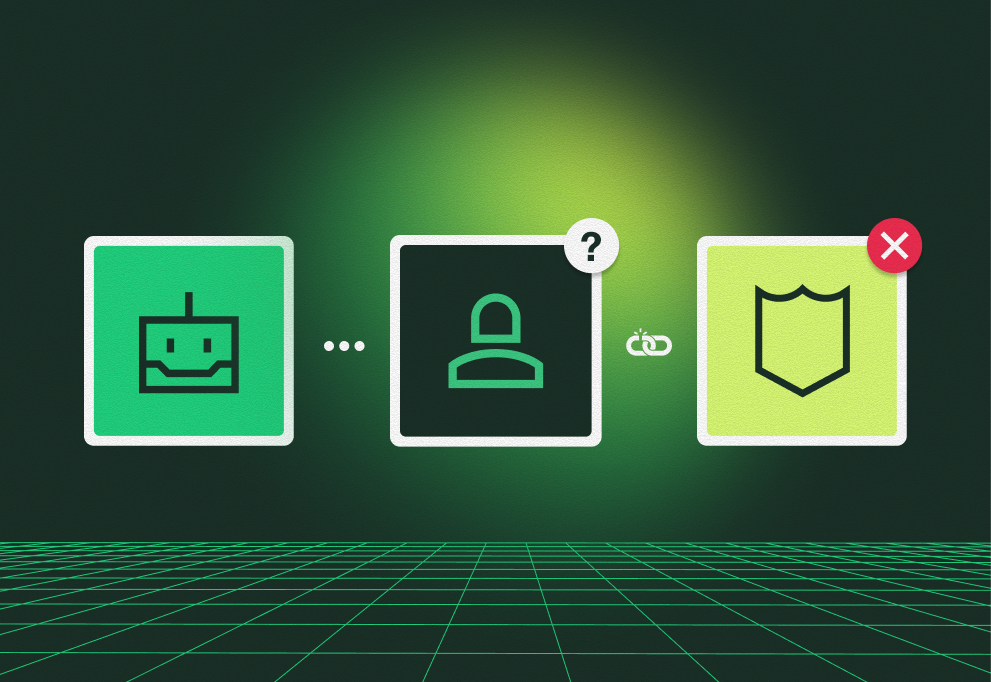Securing Non-Human Identities in Complex Hybrid, Multi-Cloud, and Agentic AI Environments

A Big Data Approach to Managing Identity Risk in Modern Enterprise Environments
Modern enterprise environments are more fragmented and dynamic than ever before. Organizations now operate across complex hybrid and multi-cloud infrastructures, orchestrating workloads in containerized clusters while integrating rapidly-evolving agentic AI systems.
In this landscape, non-human identities (NHIs), including service accounts, workload identities, access tokens, APIs and autonomous agents, have exploded in number and complexity. They now represent more than 98% of all identities within the enterprise and are spread across environments, tools, and teams.
Despite this surge, most organizations lack a scalable way to manage, secure, and govern NHIs. Traditional identity security approaches, which were built for centralized, human-centric systems, can’t keep up.
Token Security addresses this critical gap by rethinking NHI security management for the modern cloud-native, AI-enabled enterprise. The Token Security platform applies a big data architecture to unify fragmented identity signals, enabling secure, confident remediation and policy automation at enterprise scale.
The Modern Challenge: Identity Chaos Across Cloud, Containers, and AI Agents
Enterprises today operate in an increasingly chaotic identity environment, driven by three core trends:
1. Hybrid and Multi-Cloud Sprawl
Workloads now run across AWS, Azure, GCP, and on-prem environments. Every cloud platform introduces its own identity model, access policies, and credential types. Managing consistent identity governance across these silos is nearly impossible without abstraction and consolidation.
2. Containerization and Ephemeral Infrastructure
Kubernetes, Docker, and serverless functions introduce highly dynamic, short-lived workloads that create and destroy identities in seconds. These identities often inherit privileges, tokens, and secrets with little to no oversight that lead to over-permissioned services and unmanaged exposure.
3. Agentic AI and Autonomous Systems
The adoption of generative AI and agentic workloads is reshaping digital infrastructure. Custom GPTs, autonomous AI agents, and LLM-backed processes are now independently initiating actions, making API calls, and accessing sensitive data. These agents use NHIs in order to authenticate to enterprise resources often using unmanaged credentials, without human accountability.
These trends converge to create a perfect storm: massive scale, decentralization, and visibility gaps in non-human identity security.
Why Modern Environments Face New Challenges with Traditional IAM
Legacy identity and access management (IAM) and secrets management solutions were never designed to handle:
- Cross-cloud heterogeneity
- Short-lived containers and services
- Developer-led identity creation
- Continuous deployment pipelines
- Autonomous AI agent behaviors
These solutions struggle to answer simple, but critical NHI security questions:
- Who owns this identity?
- What system created it?
- Is it still in use?
- What will break if I revoke it?
- How does it interact with my AI agents?
Without answers, NHI remediation becomes risky, automation is unsafe, and risk accumulates silently.
Token Security’s Big Data Approach: Identity as a Data Problem
Token Security’s key innovation is its treatment of NHI security as a big data challenge, not merely an access or secrets management task. The architecture of the Token Security platform is designed to ingest, normalize, and correlate massive volumes of identity-related telemetry across fragmented environments.
Unified Data Layer Across Hybrid Environments
The Token Security platform integrates with major cloud providers (AWS, GCP, Azure), on-prem systems, Kubernetes clusters, SaaS apps, AI frameworks, and other workloads. It pulls data from identity providers (Okta, Active Directory, AzureAD, EntraID), CI/CD pipelines (GitHub, GitLab, CircleCi) secrets managers (Vault, AWS Secrets Manager, Azure Key Vault, CyberArk), and runtime environments.
This data is then transformed into a visual NHI Risk Graph™, capturing:
- Identity creation source
- Runtime usage patterns
- Secret vaulting status and exposure points
- Effective permissions and risk levels
- Organizational ownership and accountability
This unified layer delivers NHI contextual awareness and intelligence to provide a foundation for high-confidence decision-making, automation, and policy enforcement.
Remediation with Confidence: From Chaos to Control
In complex, ephemeral environments, blindly rotating a credential or disabling an identity can take down production systems. While some tools provide NHI visibility, security teams get frustrated that remediation is not automated, introduces new issues and does not scale. This is why the data layer and contextual awareness is so important. Token Security solves this with remediation intelligence powered by big data and real-time telemetry.
Security, identity and platform teams gain:
- Ownership mapping: Identify responsible teams, developers, and services
- Infrastructure linkage: Trace identities to source code and infrastructure dependencies
- Secrets connection: Gain visibility to secrets, dependencies and where they are vaulted
- Runtime analysis: See how credentials and identities are actually being consumed
- Usage impact: Simulate and understand the downstream effects of identity actions
This allows teams to move from reactive, ticket-driven cleanups to proactive, confident lifecycle management.
Safe Automation at Scale: Campaigns for Hybrid and AI Workloads
Token Security enables teams to define automation campaigns that apply policy across the identity graph, tailored to the context of hybrid-cloud, containerized, and agentic AI systems.
Example Campaigns:
- Zero Trust cleanup: Remove unused or over-permissioned service accounts in production clusters
- Shadow AI discovery: Identify custom GPTs and agentic systems using unmanaged credentials
- Secret sprawl control: Link leaked secrets back to identities and owners, then initiate revocation
- AI agent monitoring: Track which agents are accessing data and on whose behalf
Automation playbooks can be created to enforce policy through actions like:
- Auto-deprovisioning
- Key rotation with code remediation
- Access narrowing based on runtime use
- Integration with SIEM/SOAR solutions
Automation is context-aware and safe, thanks to the deep NHI discovery, visibility, and inventory that Token Security provides.
Enterprise-Grade, Developer-Friendly Deployment
The Token Security platform is built for enterprise hybrid, cloud-native, and developer-integrated environments to support cross-functional teams responsible for NHI security. Key features include:
- Agentless onboarding for fast time-to-value
- Support for highly complex environments
- API-first architecture for custom AI/agent integrations
- MCP server for natural language queries and AI-driven remediation
- Prebuilt integrations for cloud, IGA, secrets managers, CI/CD tools, and SIEMs
The Token Security Advantage
Token Security delivers capabilities no legacy IAM or secrets platform can match in today’s environments:
- Unified NHI visibility across hybrid and multi-cloud environments
- Deep runtime analytics and identity behavior modeling
- AI-native support for agentic AI systems and custom GPTs
- Remediation with confidence, grounded in real-world data
- Safe automation via policy-based campaigns
NHI Security for the AI-Native, Cloud-Native Enterprise
In a complex enterprise environment of containers, cloud services, and autonomous AI agents, identity security can no longer be reactive, manual, or human-centric. The enterprises that succeed will be those that reframe non-human identity as a data problem and adopt platforms built to provide complete NHI visibility, confident remediation, and safe automation at scale.
Token Security offers the blueprint for securing Non-Human Identities (NHIs) in today’s modern enterprise where workloads are dynamic, agents are autonomous, and identities are everywhere.
To learn more about the Token Security platform, request a demo today.
.gif)
.avif)





